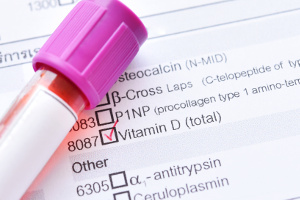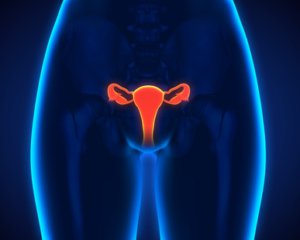afterLoad (455.7KB) (5.01ms)
afterInitialise (1.27MB) (36.09ms)
afterRoute (856.63KB) (22.47ms)
beforeRenderComponent com_tags (20.38KB) (1.81ms)
afterRenderComponent com_tags (1.66MB) (115ms)
afterDispatch (27.08KB) (6.23ms)
beforeRenderRawModule mod_articles_category (READ MORE...) (388.12KB) (25ms)
Before Access::preloadComponents (all components) (56.7KB) (514μs)
After Access::preloadComponents (all components) (103.05KB) (13.03ms)
Before Access::getAssetRules (id:8 name:com_content) (840B) (17μs)
After Access::getAssetRules (id:8 name:com_content) (7.05KB) (40μs)
afterRenderRawModule mod_articles_category (READ MORE...) (6.33KB) (163ms)
beforeRenderRawModule mod_tags_popular (Search) (4.81KB) (3.05ms)
afterRenderRawModule mod_tags_popular (Search) (1.85KB) (99.47ms)
beforeRenderRawModule mod_custom (Remember to download Heart Healthy Seniors) (816B) (25μs)
afterRenderRawModule mod_custom (Remember to download Heart Healthy Seniors) (4.86KB) (214μs)
beforeRenderRawModule mod_custom (Get additionel and more detailed knowledge ) (752B) (12μs)
afterRenderRawModule mod_custom (Get additionel and more detailed knowledge ) (1.67KB) (27μs)
beforeRenderRawModule mod_custom (BOOST YOUR IMMUNE DEFENSE) (608B) (10μs)
afterRenderRawModule mod_custom (BOOST YOUR IMMUNE DEFENSE) (928B) (22μs)
beforeRenderRawModule mod_custom (Are you taking supplements) (736B) (9μs)
afterRenderRawModule mod_custom (Are you taking supplements) (1.03KB) (19μs)
beforeRenderRawModule mod_custom (Antiaging) (720B) (9μs)
afterRenderRawModule mod_custom (Antiaging) (1.02KB) (18μs)
beforeRenderRawModule mod_custom (Exercise) (720B) (9μs)
afterRenderRawModule mod_custom (Exercise) (1.02KB) (17μs)
beforeRenderRawModule mod_custom (Check this before you buy a Q10 product) (752B) (9μs)
afterRenderRawModule mod_custom (Check this before you buy a Q10 product) (944B) (18μs)
beforeRenderRawModule mod_custom (Chronic fatigue tied Alan to his bed but Q10 capsules saved him:) (245.53KB) (12.37ms)
afterRenderRawModule mod_custom (Chronic fatigue tied Alan to his bed but Q10 capsules saved him:) (960B) (44μs)
beforeRenderModule mod_custom (Chronic fatigue tied Alan to his bed but Q10 capsules saved him:) (768B) (4μs)
afterRenderModule mod_custom (Chronic fatigue tied Alan to his bed but Q10 capsules saved him:) (1.3KB) (70μs)
beforeRenderRawModule mod_custom (Cholesterol-lowering without side effects:) (368B) (12μs)
afterRenderRawModule mod_custom (Cholesterol-lowering without side effects:) (2.19KB) (24μs)
beforeRenderModule mod_custom (Cholesterol-lowering without side effects:) (752B) (2μs)
afterRenderModule mod_custom (Cholesterol-lowering without side effects:) (1.28KB) (30μs)
beforeRenderModule mod_articles_category (READ MORE...) (21.32KB) (332μs)
afterRenderModule mod_articles_category (READ MORE...) (1.25KB) (40μs)
beforeRenderModule mod_tags_popular (Search) (5.17KB) (13μs)
afterRenderModule mod_tags_popular (Search) (1.27KB) (25μs)
beforeRenderModule mod_custom (Remember to download Heart Healthy Seniors) (1.17KB) (11μs)
afterRenderModule mod_custom (Remember to download Heart Healthy Seniors) (1.3KB) (22μs)
beforeRenderModule mod_custom (Get additionel and more detailed knowledge ) (368B) (9μs)
afterRenderModule mod_custom (Get additionel and more detailed knowledge ) (1.3KB) (22μs)
beforeRenderModule mod_custom (BOOST YOUR IMMUNE DEFENSE) (224B) (9μs)
afterRenderModule mod_custom (BOOST YOUR IMMUNE DEFENSE) (1.28KB) (651μs)
beforeRenderModule mod_custom (Are you taking supplements) (352B) (28μs)
afterRenderModule mod_custom (Are you taking supplements) (1.28KB) (56μs)
beforeRenderModule mod_custom (Antiaging) (336B) (12μs)
afterRenderModule mod_custom (Antiaging) (1.27KB) (26μs)
beforeRenderModule mod_custom (Exercise) (336B) (10μs)
afterRenderModule mod_custom (Exercise) (1.25KB) (23μs)
beforeRenderModule mod_custom (Check this before you buy a Q10 product) (352B) (9μs)
afterRenderModule mod_custom (Check this before you buy a Q10 product) (1.28KB) (22μs)
beforeRenderRawModule mod_menu (Main menu-US) (20.94KB) (596μs)
afterRenderRawModule mod_menu (Main menu-US) (152.66KB) (4.51ms)
beforeRenderModule mod_menu (Main menu-US) (720B) (5μs)
afterRenderModule mod_menu (Main menu-US) (4.36KB) (58μs)
beforeRenderRawModule mod_languages (Sprogskift) (3.44KB) (17μs)
afterRenderRawModule mod_languages (Sprogskift) (26.9KB) (8.92ms)
beforeRenderModule mod_languages (Sprogskift) (720B) (5μs)
afterRenderModule mod_languages (Sprogskift) (5.31KB) (21μs)
beforeRenderRawModule mod_finder () (6.34KB) (11μs)
afterRenderRawModule mod_finder () (219.66KB) (11.23ms)
beforeRenderModule mod_finder () (704B) (5μs)
afterRenderModule mod_finder () (5.79KB) (37μs)
beforeRenderRawModule mod_custom () (6.62KB) (147μs)
afterRenderRawModule mod_custom () (22.61KB) (2.14ms)
beforeRenderModule mod_custom () (704B) (5μs)
afterRenderModule mod_custom () (1.23KB) (54μs)
beforeRenderRawModule mod_menu (Main menu-US) (5.07KB) (102μs)
afterRenderRawModule mod_menu (Main menu-US) (5.8KB) (634μs)
beforeRenderModule mod_menu (Main menu-US) (720B) (3μs)
afterRenderModule mod_menu (Main menu-US) (1.25KB) (45μs)
beforeRenderRawModule mod_languages (Sprogskift Mobil) (912B) (17μs)
afterRenderRawModule mod_languages (Sprogskift Mobil) (3.89KB) (1.97ms)
beforeRenderModule mod_languages (Sprogskift Mobil) (720B) (6μs)
afterRenderModule mod_languages (Sprogskift Mobil) (1.27KB) (40μs)
beforeRenderRawModule mod_finder () (2.3KB) (12μs)
afterRenderRawModule mod_finder () (6.29KB) (3.99ms)
beforeRenderModule mod_finder () (704B) (5μs)
afterRenderModule mod_finder () (1.23KB) (51μs)
beforeRenderRawModule mod_custom () (8.66KB) (177μs)
afterRenderRawModule mod_custom () (904B) (132μs)
beforeRenderModule mod_custom () (704B) (3μs)
afterRenderModule mod_custom () (2.43KB) (25μs)
beforeRenderRawModule mod_custom () (688B) (78μs)
afterRenderRawModule mod_custom () (896B) (91μs)
beforeRenderModule mod_custom () (704B) (3μs)
afterRenderModule mod_custom () (2.71KB) (20μs)
afterRender (312.21KB) (20.64ms)
| 1 x afterRenderRawModule mod_articles_category (READ MORE...) (6.33KB) (29.11%) | 163.41ms |
| 1 x afterRenderComponent com_tags (1.66MB) (20.43%) | 114.65ms |
| 1 x afterRenderRawModule mod_tags_popular (Search) (1.85KB) (17.72%) | 99.47ms |
| 1 x afterInitialise (1.27MB) (6.43%) | 36.09ms |
| 1 x beforeRenderRawModule mod_articles_category (READ MORE...) (388.12KB) (4.45%) | 25.00ms |
| 1 x afterRoute (856.63KB) (4%) | 22.47ms |
| 1 x afterRender (312.21KB) (3.68%) | 20.64ms |
| 1 x After Access::preloadComponents (all components) (103.05KB) (2.32%) | 13.03ms |
| 1 x beforeRenderRawModule mod_custom (Chronic fatigue tied Alan to his bed but Q10 capsules saved him:) (245.53KB) (2.2%) | 12.37ms |
| 1 x afterRenderRawModule mod_finder () (219.66KB) (2%) | 11.23ms |
| 1 x afterRenderRawModule mod_languages (Sprogskift) (26.9KB) (1.59%) | 8.92ms |
| 1 x afterDispatch (27.08KB) (1.11%) | 6.23ms |
| 1 x afterLoad (455.7KB) (0.89%) | 5.01ms |
| 1 x afterRenderRawModule mod_menu (Main menu-US) (152.66KB) (0.8%) | 4.51ms |
| 1 x afterRenderRawModule mod_finder () (6.29KB) (0.71%) | 3.99ms |
| 1 x beforeRenderRawModule mod_tags_popular (Search) (4.81KB) (0.54%) | 3.05ms |
| 1 x afterRenderRawModule mod_custom () (22.61KB) (0.38%) | 2.14ms |
| 1 x afterRenderRawModule mod_languages (Sprogskift Mobil) (3.89KB) (0.35%) | 1.97ms |
| 1 x beforeRenderComponent com_tags (20.38KB) (0.32%) | 1.81ms |
| 1 x afterRenderModule mod_custom (BOOST YOUR IMMUNE DEFENSE) (1.28KB) (0.12%) | 651μs |
| 1 x afterRenderRawModule mod_menu (Main menu-US) (5.8KB) (0.11%) | 634μs |
| 1 x beforeRenderRawModule mod_menu (Main menu-US) (20.94KB) (0.11%) | 596μs |
| 1 x Before Access::preloadComponents (all components) (56.7KB) (0.09%) | 514μs |
| 1 x beforeRenderModule mod_articles_category (READ MORE...) (21.32KB) (0.06%) | 332μs |
| 1 x afterRenderRawModule mod_custom (Remember to download Heart Healthy Seniors) (4.86KB) (0.04%) | 214μs |
| 1 x beforeRenderRawModule mod_custom () (8.66KB) (0.03%) | 177μs |
| 1 x beforeRenderRawModule mod_custom () (6.62KB) (0.03%) | 147μs |
| 1 x afterRenderRawModule mod_custom () (904B) (0.02%) | 132μs |
| 1 x beforeRenderRawModule mod_menu (Main menu-US) (5.07KB) (0.02%) | 102μs |
| 1 x afterRenderRawModule mod_custom () (896B) (0.02%) | 91μs |
| 1 x beforeRenderRawModule mod_custom () (688B) (0.01%) | 78μs |
| 1 x afterRenderModule mod_custom (Chronic fatigue tied Alan to his bed but Q10 capsules saved him:) (1.3KB) (0.01%) | 70μs |
| 1 x afterRenderModule mod_menu (Main menu-US) (4.36KB) (0.01%) | 58μs |
| 1 x afterRenderModule mod_custom (Are you taking supplements) (1.28KB) (0.01%) | 56μs |
| 1 x afterRenderModule mod_custom () (1.23KB) (0.01%) | 54μs |
| 1 x afterRenderModule mod_finder () (1.23KB) (0.01%) | 51μs |
| 1 x afterRenderModule mod_menu (Main menu-US) (1.25KB) (0.01%) | 45μs |
| 1 x afterRenderRawModule mod_custom (Chronic fatigue tied Alan to his bed but Q10 capsules saved him:) (960B) (0.01%) | 44μs |
| 1 x afterRenderModule mod_articles_category (READ MORE...) (1.25KB) (0.01%) | 40μs |
| 1 x afterRenderModule mod_languages (Sprogskift Mobil) (1.27KB) (0.01%) | 40μs |
| 1 x After Access::getAssetRules (id:8 name:com_content) (7.05KB) (0.01%) | 40μs |
| 1 x afterRenderModule mod_finder () (5.79KB) (0.01%) | 37μs |
| 1 x afterRenderModule mod_custom (Cholesterol-lowering without side effects:) (1.28KB) (0.01%) | 30μs |
| 1 x beforeRenderModule mod_custom (Are you taking supplements) (352B) (0%) | 28μs |
| 1 x afterRenderRawModule mod_custom (Get additionel and more detailed knowledge ) (1.67KB) (0%) | 27μs |
| 1 x afterRenderModule mod_custom (Antiaging) (1.27KB) (0%) | 26μs |
| 1 x beforeRenderRawModule mod_custom (Remember to download Heart Healthy Seniors) (816B) (0%) | 25μs |
| 1 x afterRenderModule mod_tags_popular (Search) (1.27KB) (0%) | 25μs |
| 1 x afterRenderModule mod_custom () (2.43KB) (0%) | 25μs |
| 1 x afterRenderRawModule mod_custom (Cholesterol-lowering without side effects:) (2.19KB) (0%) | 24μs |
| 1 x afterRenderModule mod_custom (Exercise) (1.25KB) (0%) | 23μs |
| 1 x afterRenderModule mod_custom (Remember to download Heart Healthy Seniors) (1.3KB) (0%) | 22μs |
| 1 x afterRenderModule mod_custom (Get additionel and more detailed knowledge ) (1.3KB) (0%) | 22μs |
| 1 x afterRenderRawModule mod_custom (BOOST YOUR IMMUNE DEFENSE) (928B) (0%) | 22μs |
| 1 x afterRenderModule mod_custom (Check this before you buy a Q10 product) (1.28KB) (0%) | 22μs |
| 1 x afterRenderModule mod_languages (Sprogskift) (5.31KB) (0%) | 21μs |
| 1 x afterRenderModule mod_custom () (2.71KB) (0%) | 20μs |
| 1 x afterRenderRawModule mod_custom (Are you taking supplements) (1.03KB) (0%) | 19μs |
| 1 x afterRenderRawModule mod_custom (Antiaging) (1.02KB) (0%) | 18μs |
| 1 x afterRenderRawModule mod_custom (Check this before you buy a Q10 product) (944B) (0%) | 18μs |
| 1 x Before Access::getAssetRules (id:8 name:com_content) (840B) (0%) | 17μs |
| 1 x afterRenderRawModule mod_custom (Exercise) (1.02KB) (0%) | 17μs |
| 1 x beforeRenderRawModule mod_languages (Sprogskift) (3.44KB) (0%) | 17μs |
| 1 x beforeRenderRawModule mod_languages (Sprogskift Mobil) (912B) (0%) | 17μs |
| 1 x beforeRenderModule mod_tags_popular (Search) (5.17KB) (0%) | 13μs |
| 1 x beforeRenderRawModule mod_custom (Get additionel and more detailed knowledge ) (752B) (0%) | 12μs |
| 1 x beforeRenderRawModule mod_custom (Cholesterol-lowering without side effects:) (368B) (0%) | 12μs |
| 1 x beforeRenderModule mod_custom (Antiaging) (336B) (0%) | 12μs |
| 1 x beforeRenderRawModule mod_finder () (2.3KB) (0%) | 12μs |
| 1 x beforeRenderModule mod_custom (Remember to download Heart Healthy Seniors) (1.17KB) (0%) | 11μs |
| 1 x beforeRenderRawModule mod_finder () (6.34KB) (0%) | 11μs |
| 3 x beforeRenderModule mod_custom () (704B) (0%) | 11μs |
| 1 x beforeRenderRawModule mod_custom (BOOST YOUR IMMUNE DEFENSE) (608B) (0%) | 10μs |
| 1 x beforeRenderModule mod_custom (Exercise) (336B) (0%) | 10μs |
| 2 x beforeRenderModule mod_finder () (704B) (0%) | 10μs |
| 1 x beforeRenderRawModule mod_custom (Are you taking supplements) (736B) (0%) | 9μs |
| 1 x beforeRenderRawModule mod_custom (Antiaging) (720B) (0%) | 9μs |
| 1 x beforeRenderModule mod_custom (Check this before you buy a Q10 product) (352B) (0%) | 9μs |
| 1 x beforeRenderRawModule mod_custom (Exercise) (720B) (0%) | 9μs |
| 1 x beforeRenderRawModule mod_custom (Check this before you buy a Q10 product) (752B) (0%) | 9μs |
| 1 x beforeRenderModule mod_custom (Get additionel and more detailed knowledge ) (368B) (0%) | 9μs |
| 1 x beforeRenderModule mod_custom (BOOST YOUR IMMUNE DEFENSE) (224B) (0%) | 9μs |
| 2 x beforeRenderModule mod_menu (Main menu-US) (720B) (0%) | 8μs |
| 1 x beforeRenderModule mod_languages (Sprogskift Mobil) (720B) (0%) | 6μs |
| 1 x beforeRenderModule mod_languages (Sprogskift) (720B) (0%) | 5μs |
| 1 x beforeRenderModule mod_custom (Chronic fatigue tied Alan to his bed but Q10 capsules saved him:) (768B) (0%) | 4μs |
| 1 x beforeRenderModule mod_custom (Cholesterol-lowering without side effects:) (752B) (0%) | 2μs |
 Most cells in the human body need vitamin D. The nutrient also has an important role in preventing symptoms and diseases that may occur after menopause – including osteoporosis, muscle weakness, dry mucosa, mood swings, cardiovascular disease, type 2 diabetes, and cancer. In an article that is published in Frontiers in Physiology, the authors address the widespread vitamin D deficiency that is an overlooked problem in post-menopausal women, and they suggest striving to have optimal vitamin D levels in the blood throughout life.
Most cells in the human body need vitamin D. The nutrient also has an important role in preventing symptoms and diseases that may occur after menopause – including osteoporosis, muscle weakness, dry mucosa, mood swings, cardiovascular disease, type 2 diabetes, and cancer. In an article that is published in Frontiers in Physiology, the authors address the widespread vitamin D deficiency that is an overlooked problem in post-menopausal women, and they suggest striving to have optimal vitamin D levels in the blood throughout life.







 Menopause is typically linked to hormonal changes that increase the risk of aching joints, overweight, cardiovascular disease, muscle weakness, and metabolic disturbances. According to a study published in Nutrients, however, high-dosed supplementation with fish oil for eight weeks has a positive effect on blood pressure, muscle strength, chronic inflammation, and oxidative stress, which can otherwise set the stage for atherosclerosis, joint pain, and number of chronic ailments. Earlier research has also demonstrated that fish oil supplements help against dry mucous membranes and depression that are often caused by brain inflammation.
Menopause is typically linked to hormonal changes that increase the risk of aching joints, overweight, cardiovascular disease, muscle weakness, and metabolic disturbances. According to a study published in Nutrients, however, high-dosed supplementation with fish oil for eight weeks has a positive effect on blood pressure, muscle strength, chronic inflammation, and oxidative stress, which can otherwise set the stage for atherosclerosis, joint pain, and number of chronic ailments. Earlier research has also demonstrated that fish oil supplements help against dry mucous membranes and depression that are often caused by brain inflammation. Women who eat a healthy diet may prevent or delay their physical deterioration. But what type of diet has the best effect? And how can specific nutrients, which are difficult to get from the diet, improve the overall effect?
Women who eat a healthy diet may prevent or delay their physical deterioration. But what type of diet has the best effect? And how can specific nutrients, which are difficult to get from the diet, improve the overall effect? Menopause is characterized by a host of completely natural physiological changes in the hormonal balance. However, many women experience hormonal imbalances that may lead to weight gain, redistribution of their fat mass, increased abdominal obesity and an elevated risk of osteoporosis, cardiovascular disease, type 2 diabetes, and cancer. The hormonal changes may also affect the nutritional status including nutrients like vitamin D and magnesium, both of which are essential for prevention of the mentioned diseases. Now, scientists have discovered that lack of vitamin D and magnesium is widespread among menopausal women and that magnesium supplementation optimizes both levels of and the effect of vitamin D. This was demonstrated by a Spanish study that is published in Nutrients.
Menopause is characterized by a host of completely natural physiological changes in the hormonal balance. However, many women experience hormonal imbalances that may lead to weight gain, redistribution of their fat mass, increased abdominal obesity and an elevated risk of osteoporosis, cardiovascular disease, type 2 diabetes, and cancer. The hormonal changes may also affect the nutritional status including nutrients like vitamin D and magnesium, both of which are essential for prevention of the mentioned diseases. Now, scientists have discovered that lack of vitamin D and magnesium is widespread among menopausal women and that magnesium supplementation optimizes both levels of and the effect of vitamin D. This was demonstrated by a Spanish study that is published in Nutrients. Many women suffer from severe sleep problems during their menopause and it often reduces their work capability and quality of life. Supplementation with the natural sleep hormone, melatonin, may improve their sleep, according to a study that is published in Clinical and Experimental Obstetrics & Gynecology. The authors also mention that melatonin helps regulate the sex hormone balance and other metabolic processes that are important for good sleep.
Many women suffer from severe sleep problems during their menopause and it often reduces their work capability and quality of life. Supplementation with the natural sleep hormone, melatonin, may improve their sleep, according to a study that is published in Clinical and Experimental Obstetrics & Gynecology. The authors also mention that melatonin helps regulate the sex hormone balance and other metabolic processes that are important for good sleep. Breast cancer is one of the most widespread cancer forms, with 80% of cases being classified as estrogen receptor-positive. The risk of this type of breast cancer increases when you receive hormone therapy with estrogen (estradiol). The risk is also increased by hormone-disrupting substances in the environment. However, a new study shows that melatonin is able to inhibit a gene that influences the estrogen receptors in breast cancer cells. Melatonin is primarily known for its role as a sleep hormone, but an increasing amount of research shows cancer-protective potential. It is therefore essential to make enough melatonin yourself or to compensate for deficiencies by taking melatonin supplements
Breast cancer is one of the most widespread cancer forms, with 80% of cases being classified as estrogen receptor-positive. The risk of this type of breast cancer increases when you receive hormone therapy with estrogen (estradiol). The risk is also increased by hormone-disrupting substances in the environment. However, a new study shows that melatonin is able to inhibit a gene that influences the estrogen receptors in breast cancer cells. Melatonin is primarily known for its role as a sleep hormone, but an increasing amount of research shows cancer-protective potential. It is therefore essential to make enough melatonin yourself or to compensate for deficiencies by taking melatonin supplements Overweight is looked upon as a global epidemic with grave consequences for public health. In a new review article that is published in International Journal of Molecular Sciences, scientists look closer at the relation between melatonin and overweight. Primarily known for its role as a sleep hormone, melatonin is also important for the body’s carbohydrate and lipid metabolism. The authors study melatonin’s role in the body’s energy metabolism and in oxidative stress and inflammation, which is known to make overweight bad for your health. They also look at how melatonin affects the circadian rhythm and its role in sleep disturbances and the gut flora that also influence body weight.
Overweight is looked upon as a global epidemic with grave consequences for public health. In a new review article that is published in International Journal of Molecular Sciences, scientists look closer at the relation between melatonin and overweight. Primarily known for its role as a sleep hormone, melatonin is also important for the body’s carbohydrate and lipid metabolism. The authors study melatonin’s role in the body’s energy metabolism and in oxidative stress and inflammation, which is known to make overweight bad for your health. They also look at how melatonin affects the circadian rhythm and its role in sleep disturbances and the gut flora that also influence body weight.
 During menopause, many women experience hot flashes, mood swings, impaired sleep, sensitive mucous membranes, aching joints, and several other problems. However, most of these symptoms occur as a result of our lifestyle not being properly adjusted to our evolutionary heritage. For that reason, simple dietary adjustments and supplements with essential nutrients can often reduce the annoying symptoms.
During menopause, many women experience hot flashes, mood swings, impaired sleep, sensitive mucous membranes, aching joints, and several other problems. However, most of these symptoms occur as a result of our lifestyle not being properly adjusted to our evolutionary heritage. For that reason, simple dietary adjustments and supplements with essential nutrients can often reduce the annoying symptoms. New Year’s resolutions are often related to healthier living with better dietary choices, fewer stimulants, and more exercise. We want to stay as young and vital as possible with lots of energy. However, life is not always that simple, and nature often needs a helping hand. The following anti-ageing tips – including the essential beauty sleep – are based on a summary of articles that have all been published previously on this site.
New Year’s resolutions are often related to healthier living with better dietary choices, fewer stimulants, and more exercise. We want to stay as young and vital as possible with lots of energy. However, life is not always that simple, and nature often needs a helping hand. The following anti-ageing tips – including the essential beauty sleep – are based on a summary of articles that have all been published previously on this site.
 Melatonin is primarily known as a sleep hormone, but the substance deserves a lot more attention. Studies show that melatonin can step up the body's fat burning capacity, reduce nocturnal hunger, and counteract weight increase in postmenopausal women.
Melatonin is primarily known as a sleep hormone, but the substance deserves a lot more attention. Studies show that melatonin can step up the body's fat burning capacity, reduce nocturnal hunger, and counteract weight increase in postmenopausal women. Many women experience sleep deprivation as one of the biggest problems of menopause. Not only does this condition cause fatigue, it also increases the risk of overweight, depression, impaired immune resistance, weak bones, atherosclerosis, and dementia. It is therefore a very good idea to solve any sleeping problem with the natural substance melatonin and a few other simple adjustments.
Many women experience sleep deprivation as one of the biggest problems of menopause. Not only does this condition cause fatigue, it also increases the risk of overweight, depression, impaired immune resistance, weak bones, atherosclerosis, and dementia. It is therefore a very good idea to solve any sleeping problem with the natural substance melatonin and a few other simple adjustments. If you want to lose weight and/or maintain your ideal weight, it is important to focus on the right proteins, on Q10, and on brown fat cells, as it all boils down to having an effective metabolism and proper energy utilization.
If you want to lose weight and/or maintain your ideal weight, it is important to focus on the right proteins, on Q10, and on brown fat cells, as it all boils down to having an effective metabolism and proper energy utilization. It has been discussed whether it is calcium or vitamin D that improves women’s cholesterol balance. Earlier studies of women who use combined supplements have not been able to determine whether the positive effect is due to calcium or vitamin D. However, a study from Women’s Health Initiative (WHI) reveals that the effect is down to vitamin D. If you want strong bones and a healthy cardiovascular system, it is a good idea to combine both calcium and vitamin D with magnesium.
It has been discussed whether it is calcium or vitamin D that improves women’s cholesterol balance. Earlier studies of women who use combined supplements have not been able to determine whether the positive effect is due to calcium or vitamin D. However, a study from Women’s Health Initiative (WHI) reveals that the effect is down to vitamin D. If you want strong bones and a healthy cardiovascular system, it is a good idea to combine both calcium and vitamin D with magnesium. Vitamin D is important for cellular calcium uptake, bone health, and a number of other functions. There is also a direct link between the widespread vitamin D deficiency problem and brittle bones and osteoporosis among post-menopausal women, according to a large Chinese study that is published in Frontiers in Nutrition. It is important to include magnesium and vitamin K2, as they also contribute to bone health.
Vitamin D is important for cellular calcium uptake, bone health, and a number of other functions. There is also a direct link between the widespread vitamin D deficiency problem and brittle bones and osteoporosis among post-menopausal women, according to a large Chinese study that is published in Frontiers in Nutrition. It is important to include magnesium and vitamin K2, as they also contribute to bone health. According to a large American study, a high dietary intake of vitamin D and calcium is associated with a lower risk of early-onset menopause, where the menstrual periods cease before a woman reaches 45 years of age. Premature menopause affects around 10 percent of women, and the condition increases the risk of impaired fertility, osteoporosis, cardiovascular disease, and earlier cognitive impairment. The prevention of these diseases is also a matter of getting enough sunshine, magnesium, and omega-3.
According to a large American study, a high dietary intake of vitamin D and calcium is associated with a lower risk of early-onset menopause, where the menstrual periods cease before a woman reaches 45 years of age. Premature menopause affects around 10 percent of women, and the condition increases the risk of impaired fertility, osteoporosis, cardiovascular disease, and earlier cognitive impairment. The prevention of these diseases is also a matter of getting enough sunshine, magnesium, and omega-3. According to a new study, supplementing with large doses of vitamin D may lower blood levels of estrogen, which may be vital for the prevention and treatment of the dreaded disease.
According to a new study, supplementing with large doses of vitamin D may lower blood levels of estrogen, which may be vital for the prevention and treatment of the dreaded disease. "After about one week of taking the Q10 supplement I could feel a huge difference," says 23-year old Alan Piccini, who has been suffering from extreme fatigue and muscle aches ever since he was a child.
"After about one week of taking the Q10 supplement I could feel a huge difference," says 23-year old Alan Piccini, who has been suffering from extreme fatigue and muscle aches ever since he was a child. “Taking capsules with co-enzyme Q10 has freed me of the severe side effects of my cholesterol lowering medicine,” Mrs Franken explains.
“Taking capsules with co-enzyme Q10 has freed me of the severe side effects of my cholesterol lowering medicine,” Mrs Franken explains.